The world order is changing. The economic power is moving east and south, where China is now the world’s second largest economy. In fact, four of the top 10 economies in the world are in Asia and South America.
This is driven by an expanding middle class. It is expected that almost 3bn new Asian middle-class consumers will account for over 40% of middle-class consumption by 2030.
Coupled to this, by mid-century, two thirds of the world’s population will live in cities, compared with just over half today. Meanwhile, the number of households in the world’s major cities is expected to grow 2.3 times faster than the cities themselves as more people choose to live on their own or in smaller family units.
These underlying factors of population, middle-class growth and urbanisation will continue to underpin the expansion in the global demand for food. This is the backdrop to the world in which the Irish agri-food sector, which exports almost 90% of everything it produces, is operating in. It is no accident that Ireland is the largest net exporter of beef in the northern hemisphere and the fifth largest in the world.
Therefore, the future success of the Irish agri-food sector and the livelihoods of Ireland’s producers lies with these exports.
More diversified markets
Buoyed by the lifting of dairy quotas and the broadening of access for beef, the industry has an opportunity to exploit the potential in export markets.
However, Ireland’s agri-food industry is faced with significant challenges. The UK remains our largest market by a distance and even though the population growth is forecast to be the highest in Europe, Brexit poses a huge challenge to Ireland and looks set to limit the potential opportunity for Irish food and drink exports.
Thankfully, Ireland’s export markets have become more diversified over recent years, highlighting the industry’s expertise in developing international markets, which is a major strength.
However, Irish exports remain vulnerable to currency fluctuations with some 70% of exports going to markets outside of the eurozone. This was particularly evident over the past 12 months, when we have seen swings of up to 20% in the sterling-euro exchange rate. The underlying weakness and volatility of sterling has negatively affected the competitiveness of Irish exports and wiped €570m off the value of exports last year.
People can get distracted with the target of €19bn
This is the backdrop to which Tara McCarthy comes in as the new CEO of Bord Bia, the state agency whose purpose is to promote sales of Irish food and horticulture abroad and in Ireland.
She takes over at a time when Irish agri-food exports reached a record €11bn – 41% more than six years ago and the seventh successive year of growth. The challenge facing McCarthy will be delivering on the strategy where the industry called out its ambition for a step change. In 2015, the industry set a target under Food Wise 2025 that €8bn could be added to exports over 10 years. She believes this strategy is as relevant today as it was pre-Brexit.
“People can get distracted with the target of €19bn, but to me it’s about identifying the road blocks along with the opportunities and how we can work these through with Government, industry and the rest of the semi-state structure to achieve that target,” says McCarthy.
Reaching beyond Europe
One of the notable features of the record exports in 2016 was the effect of market diversification in the year in which the UK decided to leave the European Union. As trade with the UK fell by 8%, triggered by the challenged exchange rates, uncertainty arising from Brexit and increased competitive pressures, exports to non-EU international markets increased by 13% to reach €3.5bn. Exports to the US and China, which account for 50% of all international exports, grew by a combined €400m in 2016. Exports to China alone surged 35% ahead of 2015 to reach €845m.
Some 80% of total export growth in 2016 was recorded in trade to international markets, where higher demand, improved market positioning and relatively steady exchange rates helped to improve the competitive position of Irish exports.
In fact, since 2010, international markets have accounted for half of the growth in total exports, which reflects the industry’s ability to identify and develop new business opportunities. Irish food and drink exports to China have increased six-fold in six years, while exports to North America and the rest of Asia have doubled in the same period.
From a customer’s perspective, sustainability has never been more important
While US president Donald Trump is less concerned about environmental and sustainability issues, McCarthy says that “from a customer’s perspective, sustainability has never been more important”.
The Origin Green programme, which has been in place for five years, was pioneering at the time, and placed Ireland to the fore in terms of a countrywide approach to sustainability. However, the world has moved on and other countries have developed their own programmes. McCarthy realises the programme now needs to evolve.
“This is about how you run your business and who you choose to do business with,” she says, adding that companies such as McDonald’s, Tesco and Nestlé are making commitments around sustainability which affect their procurement strategies.
 She acknowledges that farmers don’t often see or feel the benefits of the additional paperwork and inspections. She is clear: “If we want to be the supplier of last resort, feeding the bottom of the market, then we don’t need any scheme. We just take any price that is going and sell the commodity. However, if we want to position ourselves as a sustainable premium food supplier to any potential customer, we need the systems to prove that. It allows us sell the product.”
She acknowledges that farmers don’t often see or feel the benefits of the additional paperwork and inspections. She is clear: “If we want to be the supplier of last resort, feeding the bottom of the market, then we don’t need any scheme. We just take any price that is going and sell the commodity. However, if we want to position ourselves as a sustainable premium food supplier to any potential customer, we need the systems to prove that. It allows us sell the product.”
The farmer is our story and if they are not making money, there is no industry
She is also aware of the need for economic sustainability. “The farmer is our story and if they are not making money, there is no industry. There is no one losing sight of how important farmers are. If farming isn’t seen as a viable career, talent leaves, and it becomes unsustainable.”
She adds that attracting people to be good farmers is as important as attracting people to be good marketers.
In the context of the recent food scare in Brazil, McCarthy says you can never be too smug about someone else having a food scare. “All you can do is ensure there is a respect for the quality assurance scheme. There must be no incentive to do the wrong thing. We are not checking to bring someone down. We are checking to protect the whole industry.”
In terms of Brexit, she says the actions of Bord Bia will be simple: to defend Ireland’s position in the UK, to look at the opportunities within the continental EU market while also building Ireland’s international market base. McCarthy says trade missions are key to this.
Growth that delivers
To maintain and even grow Ireland’s food and drink exports in the years to come, it is clear to see that the Government and Bord Bia need to ensure Irish agribusinesses can defend their positions, extend their market reach and look for opportunities through market diversification. This way, export growth can better deliver for farmers, agribusiness and the economy. In doing so, current and future challenges will have to be overcome. However, Bord Bia appears to be confident and composed to achieve this, even in the eye of a storm.
The 2017Irish Farmers Journal/KPMG Agribusiness report entitled Agricultural Thinking: inside the minds of global agri leaders comes free with the current issue of the Irish Farmers Journal.
Read more
Agribusiness Report 2017: Creating value over the longer term
The Irish Farmers Journal/KPMG Agribusiness Report 2017
The world order is changing. The economic power is moving east and south, where China is now the world’s second largest economy. In fact, four of the top 10 economies in the world are in Asia and South America.
This is driven by an expanding middle class. It is expected that almost 3bn new Asian middle-class consumers will account for over 40% of middle-class consumption by 2030.
Coupled to this, by mid-century, two thirds of the world’s population will live in cities, compared with just over half today. Meanwhile, the number of households in the world’s major cities is expected to grow 2.3 times faster than the cities themselves as more people choose to live on their own or in smaller family units.
These underlying factors of population, middle-class growth and urbanisation will continue to underpin the expansion in the global demand for food. This is the backdrop to the world in which the Irish agri-food sector, which exports almost 90% of everything it produces, is operating in. It is no accident that Ireland is the largest net exporter of beef in the northern hemisphere and the fifth largest in the world.
Therefore, the future success of the Irish agri-food sector and the livelihoods of Ireland’s producers lies with these exports.
More diversified markets
Buoyed by the lifting of dairy quotas and the broadening of access for beef, the industry has an opportunity to exploit the potential in export markets.
However, Ireland’s agri-food industry is faced with significant challenges. The UK remains our largest market by a distance and even though the population growth is forecast to be the highest in Europe, Brexit poses a huge challenge to Ireland and looks set to limit the potential opportunity for Irish food and drink exports.
Thankfully, Ireland’s export markets have become more diversified over recent years, highlighting the industry’s expertise in developing international markets, which is a major strength.
However, Irish exports remain vulnerable to currency fluctuations with some 70% of exports going to markets outside of the eurozone. This was particularly evident over the past 12 months, when we have seen swings of up to 20% in the sterling-euro exchange rate. The underlying weakness and volatility of sterling has negatively affected the competitiveness of Irish exports and wiped €570m off the value of exports last year.
People can get distracted with the target of €19bn
This is the backdrop to which Tara McCarthy comes in as the new CEO of Bord Bia, the state agency whose purpose is to promote sales of Irish food and horticulture abroad and in Ireland.
She takes over at a time when Irish agri-food exports reached a record €11bn – 41% more than six years ago and the seventh successive year of growth. The challenge facing McCarthy will be delivering on the strategy where the industry called out its ambition for a step change. In 2015, the industry set a target under Food Wise 2025 that €8bn could be added to exports over 10 years. She believes this strategy is as relevant today as it was pre-Brexit.
“People can get distracted with the target of €19bn, but to me it’s about identifying the road blocks along with the opportunities and how we can work these through with Government, industry and the rest of the semi-state structure to achieve that target,” says McCarthy.
Reaching beyond Europe
One of the notable features of the record exports in 2016 was the effect of market diversification in the year in which the UK decided to leave the European Union. As trade with the UK fell by 8%, triggered by the challenged exchange rates, uncertainty arising from Brexit and increased competitive pressures, exports to non-EU international markets increased by 13% to reach €3.5bn. Exports to the US and China, which account for 50% of all international exports, grew by a combined €400m in 2016. Exports to China alone surged 35% ahead of 2015 to reach €845m.
Some 80% of total export growth in 2016 was recorded in trade to international markets, where higher demand, improved market positioning and relatively steady exchange rates helped to improve the competitive position of Irish exports.
In fact, since 2010, international markets have accounted for half of the growth in total exports, which reflects the industry’s ability to identify and develop new business opportunities. Irish food and drink exports to China have increased six-fold in six years, while exports to North America and the rest of Asia have doubled in the same period.
From a customer’s perspective, sustainability has never been more important
While US president Donald Trump is less concerned about environmental and sustainability issues, McCarthy says that “from a customer’s perspective, sustainability has never been more important”.
The Origin Green programme, which has been in place for five years, was pioneering at the time, and placed Ireland to the fore in terms of a countrywide approach to sustainability. However, the world has moved on and other countries have developed their own programmes. McCarthy realises the programme now needs to evolve.
“This is about how you run your business and who you choose to do business with,” she says, adding that companies such as McDonald’s, Tesco and Nestlé are making commitments around sustainability which affect their procurement strategies.
 She acknowledges that farmers don’t often see or feel the benefits of the additional paperwork and inspections. She is clear: “If we want to be the supplier of last resort, feeding the bottom of the market, then we don’t need any scheme. We just take any price that is going and sell the commodity. However, if we want to position ourselves as a sustainable premium food supplier to any potential customer, we need the systems to prove that. It allows us sell the product.”
She acknowledges that farmers don’t often see or feel the benefits of the additional paperwork and inspections. She is clear: “If we want to be the supplier of last resort, feeding the bottom of the market, then we don’t need any scheme. We just take any price that is going and sell the commodity. However, if we want to position ourselves as a sustainable premium food supplier to any potential customer, we need the systems to prove that. It allows us sell the product.”
The farmer is our story and if they are not making money, there is no industry
She is also aware of the need for economic sustainability. “The farmer is our story and if they are not making money, there is no industry. There is no one losing sight of how important farmers are. If farming isn’t seen as a viable career, talent leaves, and it becomes unsustainable.”
She adds that attracting people to be good farmers is as important as attracting people to be good marketers.
In the context of the recent food scare in Brazil, McCarthy says you can never be too smug about someone else having a food scare. “All you can do is ensure there is a respect for the quality assurance scheme. There must be no incentive to do the wrong thing. We are not checking to bring someone down. We are checking to protect the whole industry.”
In terms of Brexit, she says the actions of Bord Bia will be simple: to defend Ireland’s position in the UK, to look at the opportunities within the continental EU market while also building Ireland’s international market base. McCarthy says trade missions are key to this.
Growth that delivers
To maintain and even grow Ireland’s food and drink exports in the years to come, it is clear to see that the Government and Bord Bia need to ensure Irish agribusinesses can defend their positions, extend their market reach and look for opportunities through market diversification. This way, export growth can better deliver for farmers, agribusiness and the economy. In doing so, current and future challenges will have to be overcome. However, Bord Bia appears to be confident and composed to achieve this, even in the eye of a storm.
The 2017Irish Farmers Journal/KPMG Agribusiness report entitled Agricultural Thinking: inside the minds of global agri leaders comes free with the current issue of the Irish Farmers Journal.
Read more
Agribusiness Report 2017: Creating value over the longer term
The Irish Farmers Journal/KPMG Agribusiness Report 2017
 She acknowledges that farmers don’t often see or feel the benefits of the additional paperwork and inspections. She is clear: “If we want to be the supplier of last resort, feeding the bottom of the market, then we don’t need any scheme. We just take any price that is going and sell the commodity. However, if we want to position ourselves as a sustainable premium food supplier to any potential customer, we need the systems to prove that. It allows us sell the product.”
She acknowledges that farmers don’t often see or feel the benefits of the additional paperwork and inspections. She is clear: “If we want to be the supplier of last resort, feeding the bottom of the market, then we don’t need any scheme. We just take any price that is going and sell the commodity. However, if we want to position ourselves as a sustainable premium food supplier to any potential customer, we need the systems to prove that. It allows us sell the product.” 





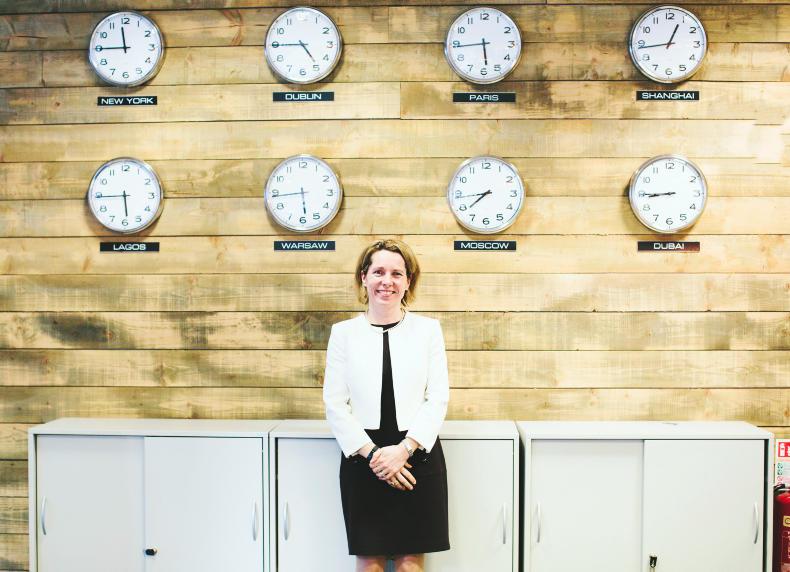
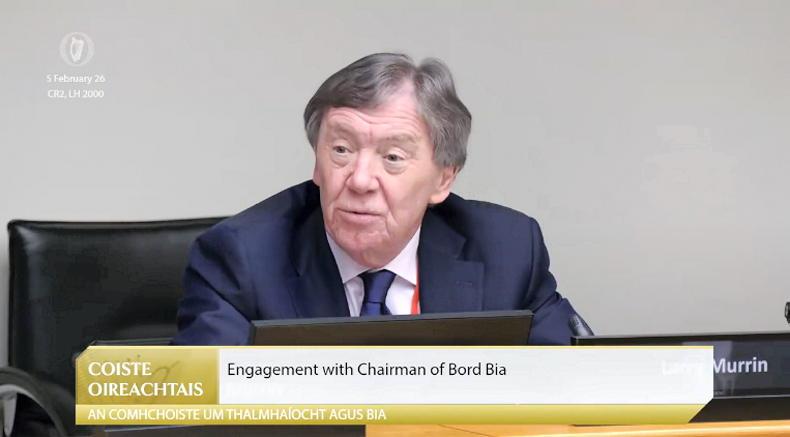

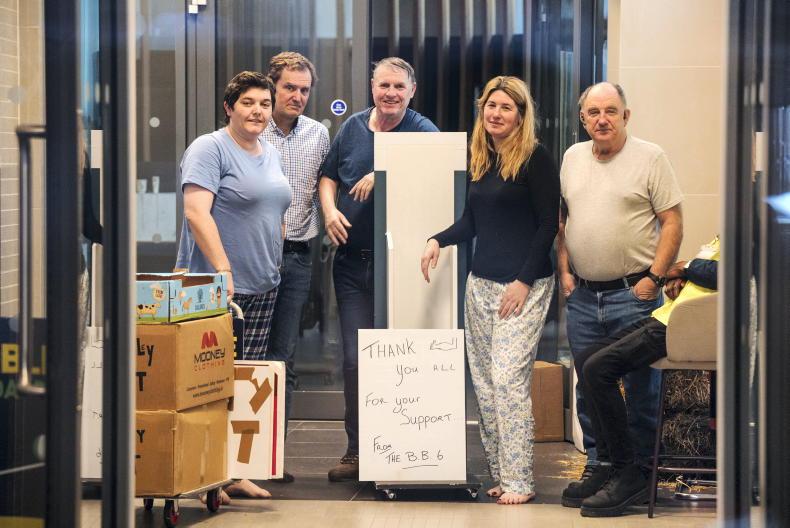
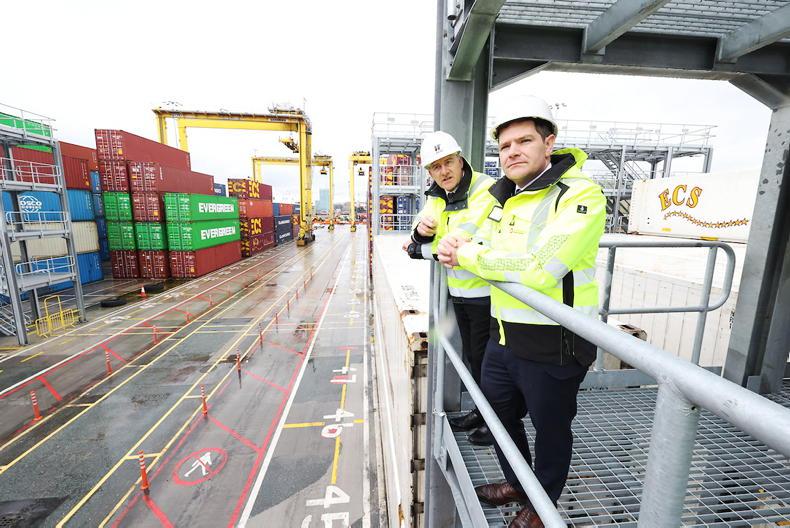
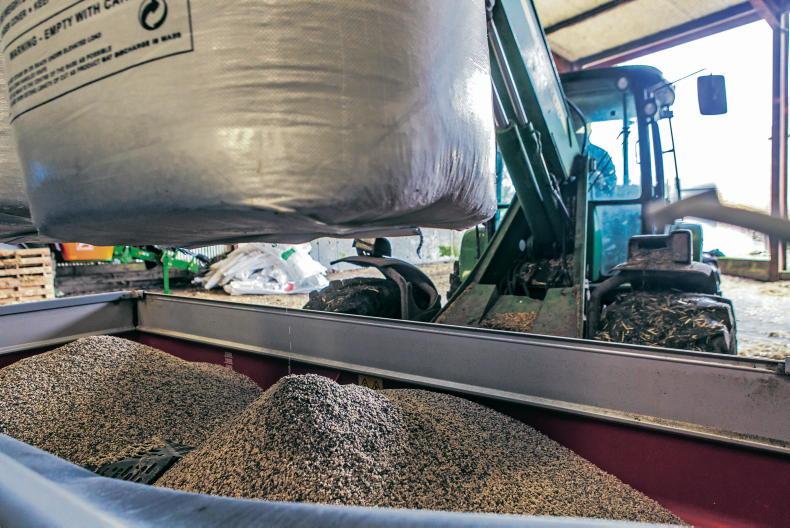
SHARING OPTIONS